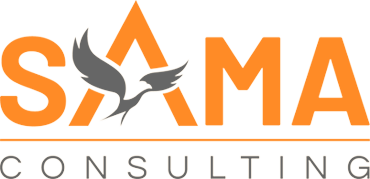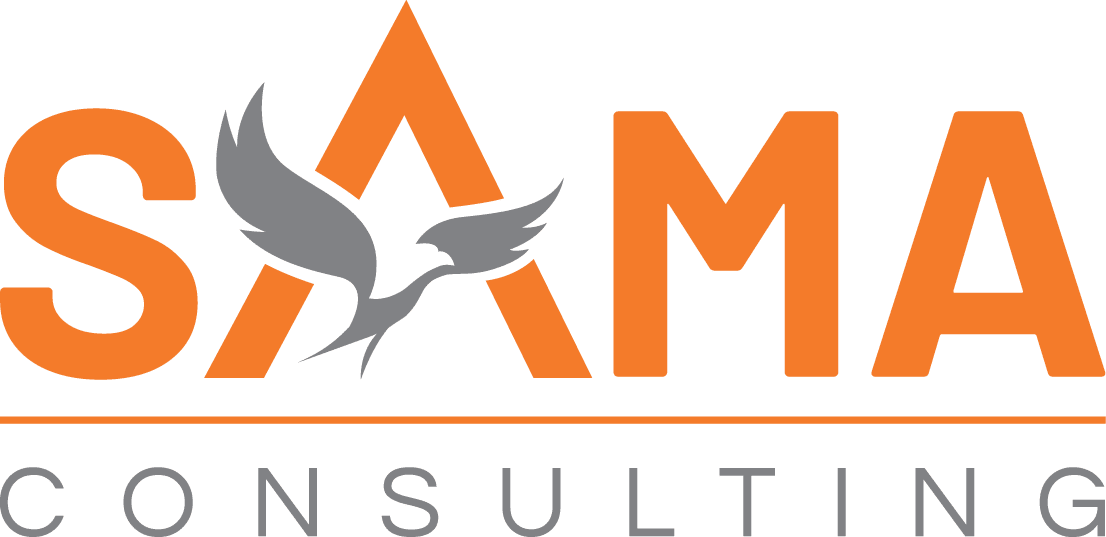
Revolutionizing the Road Ahead: How Infor ERP is Transforming the Automotive Industry
The automotive industry is navigating a perfect storm of supply chain volatility, electrification mandates, and rising consumer expectations. With the global automotive ERP market valued at approximately USD 15 billion in 2023 and projected to grow at a CAGR of 8% through 2030, manufacturers are increasingly turning to enterprise resource planning (ERP) systems to stay competitive. According to a 2025 Verified Market Reports analysis, this growth is fueled by the integration of AI and IoT in ERP platforms, enabling predictive maintenance and real-time analytics. CloudSuite Automotive, a cloud-native, industry-specific ERP platform, is leading the charge by integrating artificial intelligence (AI), machine learning (ML), and robotic process automation (RPA) to streamline operations, cut costs, and future-proof businesses. Backed by Amazon Web Services (AWS), it delivers measurable outcomes: Forrester’s 2025 Total Economic Impact (TEI) study reports a 114% ROI and 70% reductions in revenue leakage for adopters.
This expanded guide—now with additional sections on competitive analysis, emerging trends, and frequently asked questions—explores how Infor ERP empowers original equipment manufacturers (OEMs), tier suppliers, and specialty vehicle builders to tackle industry challenges. Through technical insights, real-world case studies, and data-driven benefits, we’ll uncover why Infor is the strategic engine for a $3 trillion industry.
The Evolving Landscape of Automotive Manufacturing: Why ERP is Non-Negotiable
The automotive sector is undergoing its most significant transformation since Henry Ford’s assembly line. Global vehicle sales are expected to reach 90 million units in 2025, with electric vehicles (EVs) comprising 20% of the market, up from 17% in 2024, per the International Energy Agency (IEA). This shift to electrification, alongside autonomous driving and software-defined vehicles, has amplified operational complexity. Supply chain disruptions, like the 2021 chip shortage that cost the industry $210 billion, remain a persistent threat, with 70% of issues stemming from tier-2 and tier-3 suppliers, according to McKinsey’s 2023 automotive report.
Legacy ERP systems—often on-premise and rigid—struggle to keep pace. They lack the scalability for multi-site operations and the AI-driven foresight needed for predictive analytics. Modern cloud-based ERPs, however, are game-changers. A 2025 Panorama Consulting study found that industry-specific ERP solutions deliver 30% faster deployment and 20% higher user satisfaction compared to generic platforms. For automotive firms, this translates to optimized inventory (reducing holding costs by 15-25%), enhanced traceability for recalls, and seamless Electronic Data Interchange (EDI) for OEM-supplier synchronization.
Infor CloudSuite Automotive is purpose-built for the sector, embedding automotive-specific workflows like Advanced Product Quality Planning (APQP) and Materials Management Operations Guideline/Logistics Evaluation (MMOG/LE) without requiring extensive customization. Unlike generalist ERPs like SAP or Oracle, Infor’s pre-configured modules align with the unique demands of high-volume OEMs, tier suppliers, and low-volume specialty builders. With ERP and supply chain management (SCM) software accounting for 50% of global enterprise software spend in 2025, per Forbes, investing in tailored solutions like Infor’s is critical for profitability in a margin-constrained market.
Ready to Drive Digital Transformation in the Automotive Industry?
Sama Consulting helps automotive manufacturers and suppliers leverage Infor ERP to streamline production, enhance supply chain visibility, and accelerate innovation—paving the way for a smarter, more connected future.

Demystifying Infor CloudSuite Automotive: A Technical Blueprint
Infor CloudSuite Automotive is a multi-tenant Software-as-a-Service (SaaS) platform that unifies ERP with complementary tools like Product Lifecycle Management (PLM), Manufacturing Execution Systems (MES), and Warehouse Management Systems (WMS). Built on Infor OS—an open integration fabric—it leverages AWS for 99.99% uptime, automatic upgrades, and embedded generative AI for intuitive user experiences.
Technically, it’s engineered for scale: handling petabytes of data across 68 countries and 26 languages, with localization for region-specific tax, currency, and regulatory compliance. Its microservices architecture enables modular deployment, allowing OEMs to activate features like AI-driven forecasting without disrupting core operations. Security is robust, with role-based access control (RBAC), encryption at rest and in transit, and Infor’s Governance, Risk, and Compliance (GRC) module, which reduced auditing costs by 90% for users like Miller Industries.
Who benefits?
- OEMs: Streamlining just-in-time (JIT) and just-in-sequence (JIS) for mass production.
- Tier Suppliers: Managing variable demand for EV batteries or legacy components.
- Specialty Builders: Configuring bespoke vehicles like fire trucks on shared lines.
Unlike generic ERPs, Infor’s automotive focus eliminates custom coding for 80% of workflows, per a 2025 Technology Evaluation Centers (TEC) review. Its continuous ML model training on anonymized industry data ensures it evolves with trends like software-over-the-air (OTA) updates.
Core Modules and Features: The Technical Engine Room
Infor CloudSuite Automotive’s modular design allows users to tailor functionality while ensuring seamless interoperability. Below is a technical breakdown of its core modules:
1. Multi-Mode Manufacturing Module
This module supports job shop, repetitive, and project-based production on a single platform—ideal for hybrid lines producing internal combustion engine (ICE) and EV models. It uses constraint-based planning algorithms to optimize resource allocation, factoring in finite capacity and what-if simulations. Assembly sequence control automates JIT/JIS workflows via XML-based EDI feeds, reducing line stoppages by 25% in high-config scenarios.
Key Features:
- Resource Forecasting: ML-driven demand sensing integrates IoT sensor data from shop floors for 95% accuracy in material needs.
- Plant Capacity Optimization: Linear programming balances volume, mix, and throughput.
2. Advanced Supply Chain Management (SCM)
With 60% of automotive costs tied to procurement (Deloitte, 2025), this module delivers end-to-end visibility. It employs graph databases for supplier network mapping, enabling real-time risk scoring via ML anomaly detection on shipment data.
Technical Specs:
- EDI-Integrated Collaboration: Supports AS2/AS4 protocols for secure, automated exchanges with over 1,000 partners.
- Scenario Modeling: Monte Carlo simulations predict disruption impacts, cutting lead times by 30%.
3. Integrated PLM
Bridging design to delivery, PLM manages “as-designed,” “as-built,” and “as-maintained” Bills of Materials (BOMs) with Git-like versioning for revision control. CAD-agnostic APIs integrate with tools like CATIA or SolidWorks, enforcing APQP gates through workflow engines.
Features:
- Statistical Process Control (SPC): Real-time quality analytics ensure IATF 16949 compliance.
- Stakeholder Portals: Blockchain-inspired audit trails for supplier-shared data.
4. Global Financial Management
Multi-entity consolidation uses IFRS-compliant ledgers with AI-powered anomaly detection for fraud prevention. Project costing employs activity-based models, allocating overheads via ML on historical variances.
5. MES and WMS Integration
MES digitizes shop floors with Overall Equipment Effectiveness (OEE) dashboards, pulling from Programmable Logic Controllers (PLCs) for sub-second latency. WMS offers 3D warehouse visualization and AI labor routing, boosting pick accuracy to 99.5%.
| Module | Key Technical Capability | Automotive Benefit |
| Multi-Mode Manufacturing | Constraint-based optimization | 20% throughput increase for mixed EV/ICE lines |
| SCM | Graph DB for risk mapping | 30% supplier performance uplift |
| PLM | API-driven CAD integration | 15% faster time-to-market |
| Financials | ML variance analysis | 70% revenue leakage reduction |
| MES/WMS | IoT/PLC real-time sync | 16% productivity gain |
These modules integrate via Infor OS’s event-driven architecture, ensuring instantaneous data flow for agile decision-making.
Ready to Drive Digital Transformation in the Automotive Industry?
Sama Consulting helps automotive manufacturers and suppliers leverage Infor ERP to streamline production, enhance supply chain visibility, and accelerate innovation—paving the way for a smarter, more connected future.

Tackling Automotive Pain Points: Supply Chain, Compliance, and Electrification
Infor CloudSuite Automotive turns industry challenges into opportunities. Here’s how it addresses three critical pain points:
Supply Chain Resilience
The 2021 chip crisis idled 11 million vehicles, and supply volatility persists. Infor’s SCM module mitigates risks using time-series forecasting (ARIMA models enhanced by ML) to anticipate shortages, auto-generating purchase orders with 97% on-time approval rates. For example, Sogefi reduced factory downtime by 42% through Infor’s predictive analytics. EDI portals enhance transparency, cutting manual interventions by 50%.
Regulatory Compliance and Quality
Recalls cost an average of $1,000 per vehicle (NHTSA, 2025). Infor’s PLM and MES modules use RFID/IoT for bi-directional lot tracking, automating IATF 16949 audits. Global localization ensures compliance across 68 countries, minimizing fines and reputational risks.
Electrification Imperative
As EVs demand new materials like battery-grade lithium, Infor’s PLM supports variant configuration management. Tier supplier LTH Castings used Infor to pivot to e-mobility while maintaining ICE parts production, accelerating R&D by 25%. AI simulations model battery lifecycle costs, streamlining innovation.
These capabilities have helped firms navigate 2024’s 20% supply chain volatility, per Alliance for Automotive Innovation data.
Real-World Impact: Case Studies That Drive Home the Value
Infor’s customer stories highlight measurable wins across the automotive spectrum:
Miller Industries: Towing the Line on Growth
Miller Industries, a leader in recovery equipment, adopted Infor CloudSuite with Birst analytics for shop-floor insights. The result? A 16% productivity surge, 10% throughput boost, and 90% reduction in auditing costs via GRC automation, per Constellation Research.
Triumph Motorcycles: Precision in Every Pedal
Triumph leveraged Infor for end-to-end tracking, committing to delivery dates with real-time updates. This reduced order errors by 35% and enhanced global communication efficiency.
Nedschroef: Global Scaling Without Friction
Operating 25 subsidiaries, Nedschroef centralized finance and SCM with Infor, achieving 20% faster market entry and optimized resource allocation for EV fasteners.
Quality Metalcraft: Precision Parts Perfected
This tier supplier used Infor VISUAL ERP to streamline operations, cutting cycle times by 40% through integrated quality controls.
These cases reflect a broader trend: Infor adopters see 30% average efficiency gains, per industry reports.
Ready to Drive Digital Transformation in the Automotive Industry?
Sama Consulting helps automotive manufacturers and suppliers leverage Infor ERP to streamline production, enhance supply chain visibility, and accelerate innovation—paving the way for a smarter, more connected future.

Quantifying Success: Benefits Backed by Data and Studies
Forrester’s 2025 TEI study on a composite manufacturer (reflecting automotive operations) quantifies Infor’s impact: 114% ROI over three years, with payback in under six months. Key metrics include:
- Productivity: 30% uplift for operations/warehouse staff; 70% for admin/compliance via RPA.
- Revenue Integrity: 70% reduction in leakage through AI financial insights.
- Cost Efficiencies: 40% order-to-delivery reductions; 30% supplier monitoring improvements.
A 2025 Appinventiv report corroborates this, noting that automotive ERP adopters achieve 25% inventory reductions and 18% on-time delivery improvements. Infor’s industry-specific tuning delivers value 2x faster than generic platforms.
Competitive Analysis: Infor vs. SAP and Oracle in the Automotive Arena
In a crowded ERP market, Infor CloudSuite Automotive distinguishes itself through industry depth and usability. According to Panorama Consulting Group’s 2025 Clash of the Titans report, Infor outperforms SAP and Oracle in implementation speed and cost efficiency for mid-sized automotive firms, with 25% lower total ownership costs. While SAP S/4HANA excels in large-scale global operations with its broad functionality, it often requires 40% more customization for automotive workflows, per ElevatIQ’s 2025 comparison. Oracle Cloud ERP, strong in analytics and integration with legacy systems, lags in automotive-specific features like native APQP support, leading to higher consulting fees.
Infor’s edge lies in its micro-vertical focus: pre-built templates for OEMs and suppliers reduce deployment time by 30% compared to SAP’s average 12-18 months. A Crozdesk analysis scores Infor at 85% overall, edging out SAP (87%) in user satisfaction but trailing Oracle (88%) in scalability for enterprises over 10,000 employees. For tier suppliers, Infor’s RPA and ML tools provide better ROI, with Nucleus Research naming it a market leader in usability for discrete manufacturing.
| ERP System | Strengths in Automotive | Weaknesses | Ideal For |
| Infor CloudSuite | Industry-specific modules, fast deployment, AI integration | Less suited for ultra-large globals | Mid-sized OEMs, tier suppliers |
| SAP S/4HANA | Deep analytics, global compliance | High customization costs | Large enterprises with complex supply chains |
| Oracle Cloud ERP | Strong PLM integration, scalability | Generic automotive features | Tech-heavy firms with legacy systems |
This analysis underscores Infor’s value for agile, cost-conscious automotive players.
Ready to Drive Digital Transformation in the Automotive Industry?
Sama Consulting helps automotive manufacturers and suppliers leverage Infor ERP to streamline production, enhance supply chain visibility, and accelerate innovation—paving the way for a smarter, more connected future.

Smooth Implementation: Best Practices for Automotive Leaders
Implementing Infor CloudSuite Automotive is a phased process, guided by Infor’s consultants via agile sprints. Best practices include:
- Data Migration: Use Infor’s ETL tools for clean transfers, minimizing downtime to 48 hours.
- Change Management: Leverage GenAI training modules for 90% user adoption.
- Partner Ecosystem: Engage certified integrators like Ultra Consultants for tailored configurations.
Expect time-to-value in 3-6 months, with ongoing support via Infor’s Automotive Council.
Infor’s Role in Emerging Automotive Trends
As the industry evolves, Infor is at the forefront of 2025 trends like digital twins and sustainable manufacturing. The automotive software market is valued at USD 18.19 billion in 2025, projected to reach USD 43.08 billion by 2032 at a CAGR of 13.1%, driven by AI and cloud adoption, per Coherent Market Insights. Infor integrates IoT for real-time equipment monitoring, reducing unplanned downtime by 20%.
Sustainability is key: With PwC’s 2025 report highlighting regulatory pressures on emissions, Infor’s modules track carbon footprints across supply chains, aiding compliance with EU’s CSRD. For autonomous vehicles, Infor’s PLM supports software-defined architectures, enabling OTA updates. In Asia-Pacific, where ERP growth hits 10% CAGR, Infor’s localization boosts adoption among emerging EV hubs. These trends position Infor as a partner for innovation amid tariff impacts and supply shifts, per Forvis Mazars’ 2025 outlook.
Ready to Drive Digital Transformation in the Automotive Industry?
Sama Consulting helps automotive manufacturers and suppliers leverage Infor ERP to streamline production, enhance supply chain visibility, and accelerate innovation—paving the way for a smarter, more connected future.

Future-Proofing: AI, Sustainability, and Beyond
By 2030, Infor is poised to support OTA ecosystems and circular economies. Generative AI will enhance predictive digital twins for virtual prototyping, while sustainability modules track Scope 3 emissions per EU CSRD mandates. As chip fabrication decentralizes, Infor’s ML will refine geo-risk models for resilience. With 80% of automotive executives prioritizing digital twins (Gartner, 2025), Infor’s roadmap—shaped by user councils—ensures alignment with industry trends.
Conclusion: Accelerate with Infor Today
CloudSuite Automotive is more than ERP—it’s the intelligent backbone for mobility leaders. From slashing costs to driving innovation, its technical depth delivers unmatched value. Ready to transform your operations? Explore Infor’s solutions and steer toward a smarter future.
